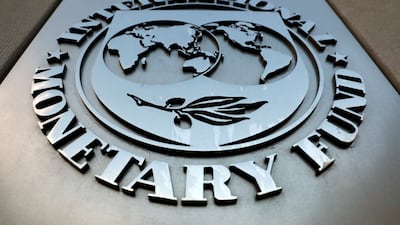The global economy is facing severe headwinds in 2022. Mounting pressure has already toppled some governments, whether through elections or popular revolutions. As the war in Ukraine continues, inflation is rising, and in particular badly affected countries popular discontent is rising with it.
The atmosphere in the ongoing annual meetings at the International Monetary Fund (IMF) and the World Bank is telling. The Fund has maintained its growth forecast for the remainder of this year, but cut its forecast for 2023, warning of an impending cost of living crisis.
The German and Italian economies, two of Europe’s largest, are likely to shrink in 2023. This is hardly surprising; both are heavily reliant on Russian gas, supplies of which have been slashed due to the war in Ukraine. Both also have large manufacturing sectors, which are suffering from supply chain troubles, rising fuel costs and fears over consumer spending. Other European powers are in trouble, too. At the end of September the IMF warned the UK that a controversial new budget would "likely increase inequality".
The cause for alarm goes far beyond Europe, particularly in emerging economies. Since the beginning of the Ukraine war, the IMF has drawn up programmes for 10 countries, estimated to be worth a total of $77 billion. They include Sri Lanka and Lebanon, both of which have seen widespread social unrest this year in large part due to economic woes.
The largest economies are suffering, too. The chief executive of JP Morgan warned earlier this week that the US was likely to go into recession by the middle of next year.
For the Middle East, the picture is mixed. The region contains some of the most ascendant and weakest economies globally. The latter are more vulnerable to the many new shocks that have come in 2022, as well as the lingering effects of the pandemic. Egypt, another country that is seeking support from the IMF, had already been contending with reduced activity in its crucial tourism industry due to the pandemic. Now, its reliance on imported grain, the vast majority of which comes from Ukraine and Russia, is another cause for concern. On the other side, Saudi Arabia is forecast to grow by 7.6 per cent, a massive expansion from last year's 3.2 per cent. As the world's largest exporter of oil, it has benefitted from high energy prices in 2022. And on Monday, the UAE agreed on its federal budget between 2023 to 2026. It estimates 11 per cent growth in government revenue in the next fiscal year.
The complexity the region is grappling with is precisely why organisations such as the IMF and the World Bank are so valuable. Throughout these incredibly challenging times and varied headwinds it has been a voice for fiscal responsibility and a vehicle to help countries most in need. Central governments hold the keys to managing the situation as sensibly as possible. But, as many have been demonstrating for some time, they need as much help, and sometimes constructive criticism, as they can get.










